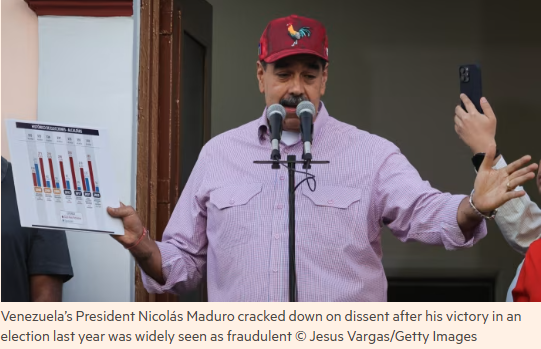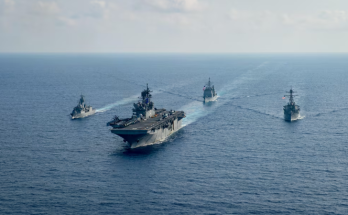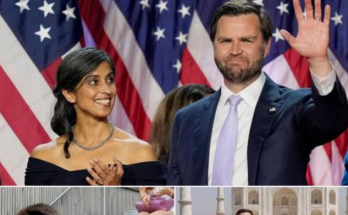In a dramatic escalation of pressure against the government of Venezuela, the United States has doubled its reward for information leading to the arrest or conviction of President Nicolás Maduro, raising it from $25 million to $50 million. The announcement was made on August 7, 2025, by U.S. Attorney General Pam Bondi and Secretary of State Marco Rubio, signaling a renewed commitment to targeting Maduro’s regime over drug trafficking and transnational organized crime.
This latest move marks a significant intensification of U.S. efforts to oust Maduro from power and bring him to justice on charges that include narco-terrorism, corruption, and human rights abuses. It comes amidst a broader U.S. crackdown on drug smuggling operations allegedly linked to the Venezuelan state, and amid increasing concern over the influence of criminal networks operating under government protection.
Background: U.S. Charges Against Maduro
The U.S. Department of Justice first announced charges against Nicolás Maduro in March 2020, accusing him of leading a “narco-terrorist partnership” with Colombia’s now-disbanded FARC rebels. Prosecutors claimed Maduro had been involved in a conspiracy to flood the U.S. with cocaine, working in coordination with members of the military and intelligence services.
The indictment also tied Maduro to the so-called “Cartel of the Suns”, a criminal organization that allegedly operates within the upper echelons of the Venezuelan government and military. The group is accused of coordinating cocaine production, transportation, and distribution routes through Central America and the Caribbean, ultimately targeting the U.S. and European drug markets.
In addition to the narco-terrorism charges, the U.S. accuses Maduro and his allies of money laundering, bribery, and enabling massive corruption that has crippled Venezuela’s economy and worsened the country’s humanitarian crisis.
The New $50 Million Bounty
The reward increase was announced as part of a joint press conference in Washington D.C., where officials unveiled additional measures targeting Venezuelan officials and criminal enterprises tied to the Maduro regime.
“This is one of the largest bounties the U.S. has ever placed on a foreign leader,” said Attorney General Pam Bondi. “Maduro has transformed Venezuela into a criminal narco-state. We will not rest until he is held accountable.”
The $50 million reward is now one of the largest ever offered by the U.S. government for a sitting head of state, reflecting the seriousness with which Washington views Maduro’s alleged criminal operations.
According to U.S. officials, recent investigations and intelligence have uncovered new evidence linking Maduro directly to fentanyl-laced cocaine shipments and arms trafficking across Latin America. The Department of Justice believes that offering a higher reward will encourage more insiders—especially former regime officials or military personnel—to come forward with actionable intelligence.
Ties to Transnational Crime
U.S. authorities have repeatedly accused the Maduro regime of maintaining alliances with international criminal networks, including Mexico’s Sinaloa Cartel and Colombia’s ELN guerrillas, in exchange for financial and logistical support. A particularly alarming development, according to recent briefings, is the growing connection between Venezuelan ports and the Tren de Aragua, a Venezuelan-based criminal group now active throughout South and Central America.
The DEA and Homeland Security Investigations have tracked cocaine shipments moving from Venezuelan territory, often escorted by military or intelligence personnel, to various staging points in the Caribbean and Central America. From there, the drugs are moved to Mexico and the United States using traditional cartel smuggling routes.
In the last two years, over 30 tons of cocaine and fentanyl-laced narcotics have been seized in connection with networks tied to the Venezuelan state. U.S. officials also claim to have frozen or seized more than $700 million in assets linked to Maduro’s inner circle—including luxury yachts, Miami real estate, and private jets.
Venezuela’s Response
The government of Venezuela swiftly condemned the announcement, calling it a “colonial provocation” and part of a broader campaign of political persecution. Foreign Minister Yván Gil said the U.S. was attempting to destabilize the country ahead of the 2025 presidential elections and accused Washington of backing regime change through “illegal and extrajudicial means.”
“This is a desperate move by the United States to interfere in Venezuela’s internal affairs,” said Gil. “President Maduro is the legitimate leader of the Bolivarian Republic of Venezuela, elected by the people. These charges and so-called rewards are nothing but political theater.”
Maduro himself, speaking in a televised address from Caracas, dismissed the allegations as “fabricated lies” and vowed to remain in power. “They will never break the will of our revolution,” he said. “We are not afraid of imperialist threats.”
International Reactions
The reward increase has received mixed reactions globally. Several Latin American governments, particularly those with leftist leanings or close ties to Caracas, criticized the move as a violation of Venezuelan sovereignty. Countries like Bolivia and Nicaragua issued statements of support for Maduro, while Mexico took a more neutral stance.
Meanwhile, opposition groups within Venezuela and exiled leaders abroad praised the decision as a long-overdue step toward accountability. Juan Guaidó, the former interim president recognized by several Western countries, said the increased reward could “encourage brave patriots within the armed forces or security services to defect and aid in Maduro’s capture.”
European allies, including France, Germany, and the U.K., reiterated their support for democratic transition in Venezuela but stopped short of endorsing the reward strategy.
Legal and Diplomatic Challenges
Offering a monetary reward for the capture of a sitting head of state presents serious legal and diplomatic challenges. While the U.S. has jurisdiction to prosecute narcotics and terrorism-related offenses that impact its borders, capturing or extraditing Maduro would almost certainly require cooperation from another government—or a coup from within.
Maduro remains heavily protected by loyalist military units, Cuban advisors, and intelligence services. Any attempt to arrest him inside Venezuela without cooperation would risk international condemnation or conflict.
Still, U.S. officials believe time is on their side. “Maduro is increasingly isolated,” said a State Department spokesperson. “His grip on power depends on a shrinking circle of loyalists, many of whom are themselves under investigation. Sooner or later, someone will talk.”
Looking Ahead
The doubling of the reward for Nicolás Maduro’s arrest underscores the United States’ determination to maintain pressure on authoritarian regimes accused of criminal activity and human rights abuses. Whether it will be effective in bringing about justice remains to be seen, but it sends a strong message to Caracas and to other authoritarian leaders worldwide.
As Venezuela prepares for presidential elections in 2025, the political and legal drama surrounding Maduro is likely to intensify. Whether the bounty leads to his capture or fuels further instability, it’s clear that U.S.–Venezuela relations remain on a collision course, with no signs of de-escalation in sight.



